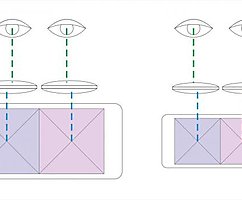The 7 most common childhood whims and how to deal with them
 Bashny.Net
Bashny.Net
When a child is unhappy about something, and whining, and the parents can't understand him – the quarrel is inevitable. The scandal erupted like a fire from one wrong reaction, because one wrong intonation of the spoken word. But the appeal of the child, it's not empty whining, as many believe. The most common of these has a very definite hidden meaning, which it is, thus, the child is trying to convey to mom or dad.
Try a few days to listen carefully to all the complaints of the baby, how to respond to them and you will be surprised how changes your relationship with your own baby. In a better way.

Complaint No. 1. Fatigue
Options: "I'm tired", "I can't" — and so the whole day, no matter how much time has passed after the holiday.
Secret meaning of complaints: Complaining of fatigue, a child stating a fact and waiting for your response. If you are too passionate about some thing- thus, he may be trying to attract your attention. If you download it, Vice versa, too – complaining of fatigue, baby means "leave me alone". But to moan child starts every time you give him an unpleasant task – it's just a way to manipulate you. The baby does not want to admit that he has no desire to fulfill your request. Overall, just a child it seems that complaints of fatigue sounds less offensive to you and more believable for it.
How to respond: find Out what the baby is tired, and what kind of help he expects from you: to sympathize, to sit or to disappear from his sight. Take the child to relax, negotiate the length of the pause in Affairs: "you will now watch a cartoon (sleep) and rest, and then we'll go to the store (continue to do)". Don't forget some time later to ask about the well-being of a son or daughter. Thus, you show that don't pass the complaints on deaf ears and I really worry for the child.
Do not say: "it was Necessary less to run (to shout, to indulge in...)" — now is not the time for criticism. If the child is manipulating you, not need to demonstrate that you know the real reason for his whims — "you're Always tired when I ask to help me." Better next time before anything to ask, ask about his health. Then the baby will not be able to simulate, under the guise of fatigue.
Complaint No. 2. Boredom
Options: To the question, why are you so sad a child responds that he is bored. Although it is clear and without words, the expression on his face.
Secret meaning of complaints: Baby is accustomed to be entertained, and can't come up with something. Or is it too long to play one and now he wants to talk to you, but he is afraid to distract mom or dad from the household chores and waiting for you to notice his sad expression.
How to respond: encourage your child to plan their free time. Decide together when he will play, when to draw, when to watch cartoons, and when to do homework. "You go after kindergarten to play a bit, then we both read it, and then you get to watch cartoon. Alternate pastime and independent of the child's play. If you notice that the kid's messing around with a dull expression – ask that he now has to plan what he's going to do.
Do not say: "Well, do something – you have so many toys," "Go, read (clean your room) – if you do not know what to do!". It is undesirable to offer child "fun" to him uninteresting things. From this alternative it will become even more sad.
Complaint No. 3. Other children
Options: "Pasha beats me," "Mary takes my toys" — and so after each communication with peers. All around bad — one it is good.
Secret meaning of complaints: If the complaint says the three year old toddler is normal. But if the other children complains the child is 5-6 years of age – this indicates the inability to find a common language with their peers. If the child is always looking for the guilty – he does not know how to analyze their own behavior and the behavior of other children. Most likely the kid had little contact with other children. He's used to having adults (parents, grandparents, older brothers and sisters) always inferior to him, and wonders why other children behave differently.
How to respond: Often leave your child alone with other children. If the children can not divide or argue – don't get. Give Chad the opportunity to solve their problems. When the baby complains, try him to logically explain the behavior of other children. "Pasha hits you not because it's bad but because you took his machine".
Do not say: "You are to blame" — now it is not necessary to search for the guilty, you need to explain to a child why other children behave this way and not otherwise.
Complaint No. 4. Adults (grandparents, caregivers)
Options: "Grandma always makes me eat soup and I have a stomach ache", "the Teacher puts me to sleep during the day and night I can't sleep."
Secret meaning of complaints: Such complaints often arise when all of the adults who are raising a child, different views on the pedagogical process. The child does not understand why mother resolves not to sleep during the day, and the teacher makes; why the parents can not eat soup, and my grandmother insists.
How to answer: Complaints will disappear as soon as adults come to a common view on child rearing and children's daily routine. If you follow the same pedagogical line does not work – explain to your child that sometimes circumstances allow you to break the particular routine.
Do not say: "Tell your grandmother I told you not to eat the soup" — no need to manipulate the adults with the child. "Grandma's not right" — such statements you are setting up the baby against other adults (who do not comply to his upbringing).

Complaint No. 5. The lack of free time
Options: Every day before sleep, a child complains that something is not the time to do — "again, I do not have time to watch cartoons". Or when you ask for help he says he again will not have time to play computer, draw.
Secret meaning of complaints: you May have too downloaded the baby, and he really has no free time. Or the child does not know how to plan it, it is too keen on one thing, to the detriment of other occupations.
How to respond: to avoid complaints about the lack of time – make with the baby a detailed schedule, which in addition to visit time different sections will be the place to carry out your instructions (help mom) and free time. In advance warn the child about the planned works "turn off the game after 20 minutes, we'll wash the floor." Then he will be able mentally prepared for the unpleasant duty and your request will not be a surprise to him.
Do not say: "You just do everything very slowly" — your task is to make a daily routine tailored to the individual characteristics of the child. If you know that the baby long dress (washes, ect) allot for these procedures as much time as he needs. Take your child with phrases like "hurry up, we're late" — if you customize it, the little man will have a feeling of constant lack of time.
Complaint No. 6. Problems in kindergarten
Options: "again, I can Do nothing", "I am the worst draw (jump, sing)".
Secret meaning of complaints: the Kid wants to speak up and share his problems with you. He needs a listener. If the child keeps complaining of the same thing (I sing badly) – he thus tries to explain their priorities.
How to respond: listen Carefully to the complaints of the baby. All you have to do is to portray a genuine interest (and it's not hard, right?..) his problems and periodically insert encouraging cues such as "wow!". And when he finally speak out, summarize: "I'm sure you can handle it, you're so smart (a real athlete, the prettiest, the best at singing...)".
Do not try to analyze the situation and get to the truth. Your task is to return the child's belief in themselves and an optimistic Outlook on life. Be sure to ask how you can help in this situation and suggest a few solutions to the problem (let me teach you to draw, I want to enroll in a music school).
Do not say: do Not try to calm the child with phrases like "this is the problem! Here me today ...". At the moment the child is looking for a shoulder to cry on. He is not ready to listen to your problems, especially because at his level it trouble him, indeed, seem to be important and more serious than yours.
Complaint No. 7. To life
Options: To the question "How are you" — the child is always one answer — it is bad, not really so-so. In General, had a bad day, life failed. In conversations with other children, he often says the phrase "Lucky you". And the stories about friends begins with the words "As well-Mâché, she has a big bike (dog, computer, TV).
Secret meaning of complaints: the child has a pessimistic character. He can't be happy with what you have and envy others. Before you blame him for "sad" view of life – carefully analyze your conversations at home. Most likely the baby constantly hears from adults about any problems that must be urgently addressed and sees his life as one big "bad luck". While from outside he did not like to hear, and I'm sure they live much easier.
Do you know where your child is now?
20 phrases that are NOT supposed to tell the mother of his adult daughter
How to respond: Your job is to teach the child to rejoice at what they have and appreciate the present. Smaller house discuss different issues. First of all, try yourself to learn to enjoy the present and focus on the crumbs it on the positive things.
Make it a tradition to take each other pleasant events. For example, during dinner, each family member will tell you that it has happened during the day, and he was pleased. The first time you have to get the child pleasant memories with leading questions, but he gradually learn to pay attention to the positive aspects of life.
Do not say: "you're bad", "You are again dissatisfied with everything" — from such "support" the child will get worse.published
Source: azbyka.ru/deti/7-samy-h-rasprostranenny-h-detskih-kaprizov-i-kak-s-nimi-borot-sya
Try a few days to listen carefully to all the complaints of the baby, how to respond to them and you will be surprised how changes your relationship with your own baby. In a better way.

Complaint No. 1. Fatigue
Options: "I'm tired", "I can't" — and so the whole day, no matter how much time has passed after the holiday.
Secret meaning of complaints: Complaining of fatigue, a child stating a fact and waiting for your response. If you are too passionate about some thing- thus, he may be trying to attract your attention. If you download it, Vice versa, too – complaining of fatigue, baby means "leave me alone". But to moan child starts every time you give him an unpleasant task – it's just a way to manipulate you. The baby does not want to admit that he has no desire to fulfill your request. Overall, just a child it seems that complaints of fatigue sounds less offensive to you and more believable for it.
How to respond: find Out what the baby is tired, and what kind of help he expects from you: to sympathize, to sit or to disappear from his sight. Take the child to relax, negotiate the length of the pause in Affairs: "you will now watch a cartoon (sleep) and rest, and then we'll go to the store (continue to do)". Don't forget some time later to ask about the well-being of a son or daughter. Thus, you show that don't pass the complaints on deaf ears and I really worry for the child.
Do not say: "it was Necessary less to run (to shout, to indulge in...)" — now is not the time for criticism. If the child is manipulating you, not need to demonstrate that you know the real reason for his whims — "you're Always tired when I ask to help me." Better next time before anything to ask, ask about his health. Then the baby will not be able to simulate, under the guise of fatigue.
Complaint No. 2. Boredom
Options: To the question, why are you so sad a child responds that he is bored. Although it is clear and without words, the expression on his face.
Secret meaning of complaints: Baby is accustomed to be entertained, and can't come up with something. Or is it too long to play one and now he wants to talk to you, but he is afraid to distract mom or dad from the household chores and waiting for you to notice his sad expression.
How to respond: encourage your child to plan their free time. Decide together when he will play, when to draw, when to watch cartoons, and when to do homework. "You go after kindergarten to play a bit, then we both read it, and then you get to watch cartoon. Alternate pastime and independent of the child's play. If you notice that the kid's messing around with a dull expression – ask that he now has to plan what he's going to do.
Do not say: "Well, do something – you have so many toys," "Go, read (clean your room) – if you do not know what to do!". It is undesirable to offer child "fun" to him uninteresting things. From this alternative it will become even more sad.
Complaint No. 3. Other children
Options: "Pasha beats me," "Mary takes my toys" — and so after each communication with peers. All around bad — one it is good.
Secret meaning of complaints: If the complaint says the three year old toddler is normal. But if the other children complains the child is 5-6 years of age – this indicates the inability to find a common language with their peers. If the child is always looking for the guilty – he does not know how to analyze their own behavior and the behavior of other children. Most likely the kid had little contact with other children. He's used to having adults (parents, grandparents, older brothers and sisters) always inferior to him, and wonders why other children behave differently.
How to respond: Often leave your child alone with other children. If the children can not divide or argue – don't get. Give Chad the opportunity to solve their problems. When the baby complains, try him to logically explain the behavior of other children. "Pasha hits you not because it's bad but because you took his machine".
Do not say: "You are to blame" — now it is not necessary to search for the guilty, you need to explain to a child why other children behave this way and not otherwise.
Complaint No. 4. Adults (grandparents, caregivers)
Options: "Grandma always makes me eat soup and I have a stomach ache", "the Teacher puts me to sleep during the day and night I can't sleep."
Secret meaning of complaints: Such complaints often arise when all of the adults who are raising a child, different views on the pedagogical process. The child does not understand why mother resolves not to sleep during the day, and the teacher makes; why the parents can not eat soup, and my grandmother insists.
How to answer: Complaints will disappear as soon as adults come to a common view on child rearing and children's daily routine. If you follow the same pedagogical line does not work – explain to your child that sometimes circumstances allow you to break the particular routine.
Do not say: "Tell your grandmother I told you not to eat the soup" — no need to manipulate the adults with the child. "Grandma's not right" — such statements you are setting up the baby against other adults (who do not comply to his upbringing).

Complaint No. 5. The lack of free time
Options: Every day before sleep, a child complains that something is not the time to do — "again, I do not have time to watch cartoons". Or when you ask for help he says he again will not have time to play computer, draw.
Secret meaning of complaints: you May have too downloaded the baby, and he really has no free time. Or the child does not know how to plan it, it is too keen on one thing, to the detriment of other occupations.
How to respond: to avoid complaints about the lack of time – make with the baby a detailed schedule, which in addition to visit time different sections will be the place to carry out your instructions (help mom) and free time. In advance warn the child about the planned works "turn off the game after 20 minutes, we'll wash the floor." Then he will be able mentally prepared for the unpleasant duty and your request will not be a surprise to him.
Do not say: "You just do everything very slowly" — your task is to make a daily routine tailored to the individual characteristics of the child. If you know that the baby long dress (washes, ect) allot for these procedures as much time as he needs. Take your child with phrases like "hurry up, we're late" — if you customize it, the little man will have a feeling of constant lack of time.
Complaint No. 6. Problems in kindergarten
Options: "again, I can Do nothing", "I am the worst draw (jump, sing)".
Secret meaning of complaints: the Kid wants to speak up and share his problems with you. He needs a listener. If the child keeps complaining of the same thing (I sing badly) – he thus tries to explain their priorities.
How to respond: listen Carefully to the complaints of the baby. All you have to do is to portray a genuine interest (and it's not hard, right?..) his problems and periodically insert encouraging cues such as "wow!". And when he finally speak out, summarize: "I'm sure you can handle it, you're so smart (a real athlete, the prettiest, the best at singing...)".
Do not try to analyze the situation and get to the truth. Your task is to return the child's belief in themselves and an optimistic Outlook on life. Be sure to ask how you can help in this situation and suggest a few solutions to the problem (let me teach you to draw, I want to enroll in a music school).
Do not say: do Not try to calm the child with phrases like "this is the problem! Here me today ...". At the moment the child is looking for a shoulder to cry on. He is not ready to listen to your problems, especially because at his level it trouble him, indeed, seem to be important and more serious than yours.
Complaint No. 7. To life
Options: To the question "How are you" — the child is always one answer — it is bad, not really so-so. In General, had a bad day, life failed. In conversations with other children, he often says the phrase "Lucky you". And the stories about friends begins with the words "As well-Mâché, she has a big bike (dog, computer, TV).
Secret meaning of complaints: the child has a pessimistic character. He can't be happy with what you have and envy others. Before you blame him for "sad" view of life – carefully analyze your conversations at home. Most likely the baby constantly hears from adults about any problems that must be urgently addressed and sees his life as one big "bad luck". While from outside he did not like to hear, and I'm sure they live much easier.
Do you know where your child is now?
20 phrases that are NOT supposed to tell the mother of his adult daughter
How to respond: Your job is to teach the child to rejoice at what they have and appreciate the present. Smaller house discuss different issues. First of all, try yourself to learn to enjoy the present and focus on the crumbs it on the positive things.
Make it a tradition to take each other pleasant events. For example, during dinner, each family member will tell you that it has happened during the day, and he was pleased. The first time you have to get the child pleasant memories with leading questions, but he gradually learn to pay attention to the positive aspects of life.
Do not say: "you're bad", "You are again dissatisfied with everything" — from such "support" the child will get worse.published
Source: azbyka.ru/deti/7-samy-h-rasprostranenny-h-detskih-kaprizov-i-kak-s-nimi-borot-sya
Tags
See also
How did most coveted baby doll from inception to the present day.
Sofas is the most common type of furniture
60 the most common expressions in English, without which it can not do. Take note!
6 most common myths about nutrition.
How to make a fool of us every day! The most common marketing ploy.
7 the most common things that people have seen after clinical death
15 most common mistakes in English
Kindergarten: the illusion of choice
How to educate the foolish, weak, and deprived of creative abilities of the child
How to wean a baby to sleep in the same bed with parents: 5 simple tips

















